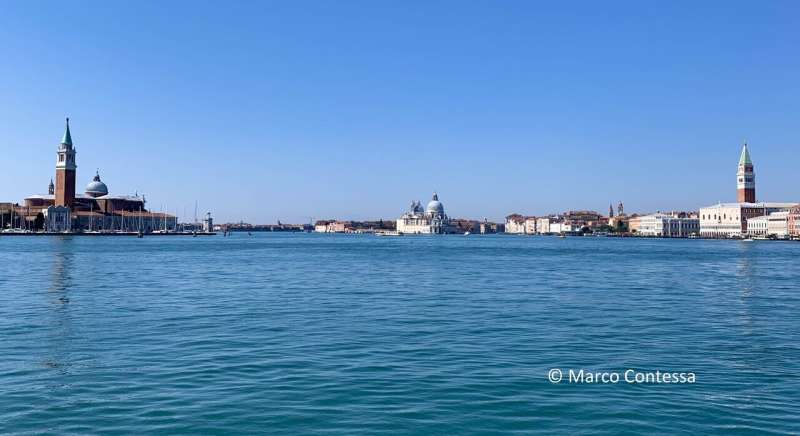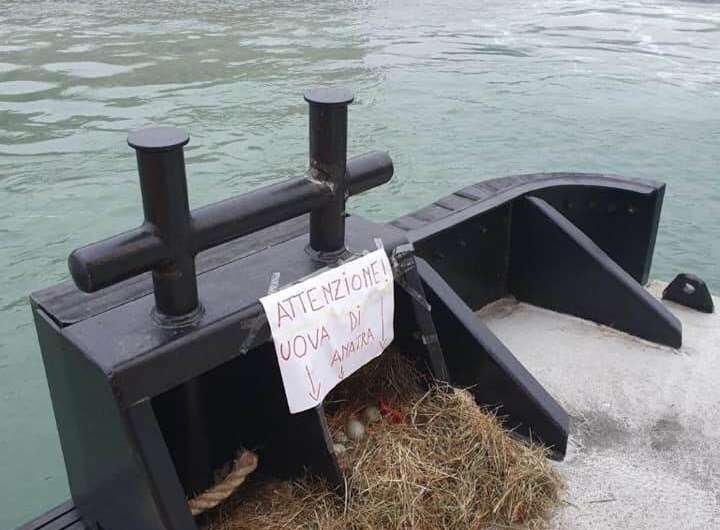The San Marco Basin unusually calm and without boats. Credit: Marco Contessa
The pandemic offers scientists an undesired, albeit unique opportunity to study the relationship between humans and the environment. The ecology research team at Ca' Foscari University of Venice has recently launched a campaign to collect pictures and data on the lagoon, also asking citizens for help.
Among many other things, the Italian response to the COVID-19 epidemic has had a drastic impact on one of the most well-known and visited cities in the world, Venice. The lagoon ecosystem is now benefiting from the absence of two key anthropic factors: tourists and private transports.
The lack of waves and the water quality in the canals have already inspired many residents to share photos. The scientists are now prompting Venetian people with the possibility to observe the surrounding environment from their home or during one of their few authorized walks to document the presence of animals and the state of the canals. All the collected material can then be sent to the research team via social media, email or online form.
The research will help delineate new sustainable systems for the city. The so-called ecosystem services will be under scrutiny, from ecological and hydrodynamic processes for water treatment to salt marshes and water plant life that trap carbon dioxide, as well as fishing, recreational activities and even day trips to the lagoon.
A mallard nest found by a resident on a vaporetto pier. Credit: Ca' Foscari University of Venice
"From a research standpoint, the anomalous situation we're currently seeing is like an unexpected experiment whose effects can be observed and quantified," explained Fabio Pranovi, Professor of Ecology at the Department of Environmental Sciences, Informatics and Statistics and coordinator of the research team. "Due to the substantial decrease in anthropic activities, we expect to witness changes in the ecological processes and consequently in some services provided by the ecosystem that have a lot to do with the wellbeing of human society."
For some years now, scientists have focused their research on quantifying and modeling the relationship between the wellbeing of humans, the surrounding ecosystem and its processes, particularly in the Venice lagoon area and the Upper Adriatic sea. Now the time has come to apply this analytical approach to the current situation.
The theory is that the transportation ban and the absence of tourists can have both positive and negative effects on ecosystem services: For example, on one hand, the water quality improves, but on the other hand, fishing and recreational activities are halted.
The study requires a huge variety of information. The researchers will use data from satellites to monitor water turbidity and compare it with past records. They will also employ socioeconomic data, such as that regarding the tourism industry.
Once the national emergency subsides, the research will continue to document the transition to the new "post-coronavirus" normality.
Provided by Ca' Foscari University of Venice























